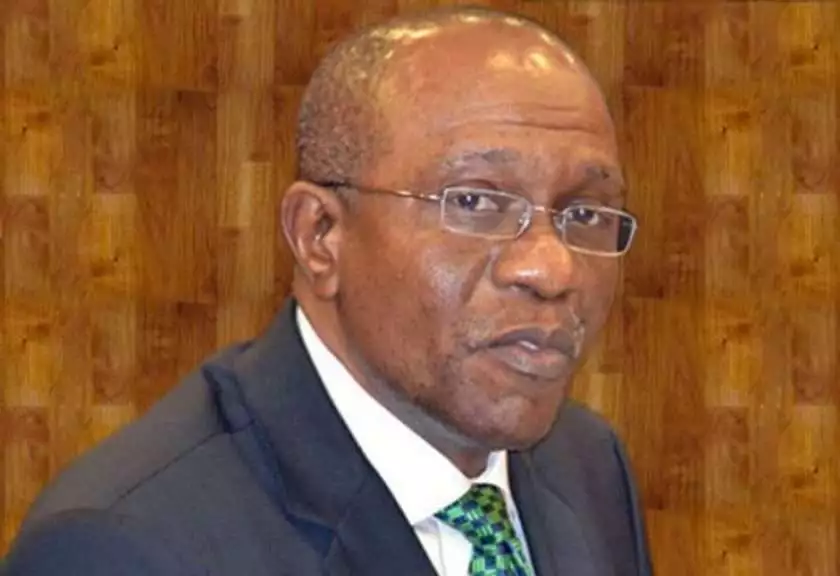By Fola James
The Central Bank of Nigeria, CBN’s decision to hike the Cash Reserve Requirement, CRR is sending conflicting signals over the monetary policy of the federal government.
Commercial banks keep a certain percentage of their liquidity with CBN. It’s called CRR.
The CBN raises the CRR whenever to reduce the cash in circulation.
The apex court, two days ago, raised the CRR to 27.5 per cent after the MPC meeting chaired by CBN Governor, Godwin Emefiele
The question is whether the hike does not conflicts with its decision to increase the Loan to Deposit Ratio, LDR, to 65 percent in the last quarter of last year.
Deposit money banks have been pushing out a large chunk of their deposit due to hike in LDR, which may have affected their liquidity, experts say.
The increase in CRR will further deplete the liquidity kept by the banks, top executives of tier one banks have informed the magazine.
They are asking whether the policy will not further drain the liquidity of cash-starved banks.
About four commercial banks are currently planing to apply for cash loans from the apex bank, sources say.
“Some of us are already in dire straits. There is fear in the sector already, that must not be complicated further by wrong policies” one CEO told the magazine at the weekend.
The CBN may have also decided to mop up cash from the circulation to cushion the effect of high spending by Nigerians during the last festive period, Gbenga Alfred, a monetary policy analyst said.
May be. But the decision to hike CLR could also be a gamble by the apex bank, to watch where the economy is headed, some analysts say, adding that the CLR could be slashed at the MPC next meeting in April.
Emefiele had disclosed after the meeting that the MPC was confused on whether to maintain the old ratio.
Addressing newsmen at the end of the MPC meeting, the CBN Governor and Chairman of the Committee, Mr. Godwin Emefiele said the MPC was drawn between the options of loosening or tightening because of the prevailing economic situation.
Raising the CLR was a hard decision, Emefiele said: “On the argument for a hold, the MPC acknowledged that a mix of heterodox monetary and financial policy measures have recently been deployed by the Bank.
Noting the existence of a lag between the policy pronouncement and its impact on the economy, hold in the rate would ensure its efficient impact on the economy. ”
“The Committee, Emefiele stated ” noted the slow pace and low rate of economic growth as real GDP growth of 2.10, 2.12 and 2.38 per cent in Q1, Q2 and Q3 2019, respectively, being below the population growth rate, still needs sustained policy support.”
He said “Maintaining the monetary policy rate at its present level is essential for sustainable support to growth before any possible adjustments.
This will enable policy to react suitably to developments as they occur in the near term.
In addition, retaining the current policy position provides avenues for evaluating the impact of the heterodox monetary and financial policies to support lending by the banking industry without altering the policy rate. ”
According to him “the downsides to holding, the Committee noted that it would reduce the speed of economic recovery relative to loosening, exert a drag on output growth, as DMBs continue to utilise bonds sales instead of engaging in financial intermediation to the private sector.
He said “In view of the foregoing, the Committee by a decision of nine members voted to alter the Cash Reserve Requirement (CRR) by 500 basis points from 22.5 to 27.5 per cent, while leaving all other policy parameters constant. Tthe amount of liquidity in circulation.
Addressing newsmen at the end of the MPC meeting, the CBN Governor and Chairman of the Committee, Mr. Godwin Emefiele said the MPC was drawn between the options of loosening or tightening because of the prevailing economic situation.
He explained how the option of tightening weighed against loosening: “On the argument for a hold, the MPC acknowledged that a mix of heterodox monetary and financial policy measures have recently been deployed by the Bank. Noting the existence of a lag between the policy pronouncement and its impact on the economy, hold in the rate would ensure its efficient impact on the economy.
“The Committee noted the slow pace and low rate of economic growth as real GDP growth of 2.10, 2.12 and 2.38 per cent in Q1, Q2 and Q3 2019, respectively, being below the population growth rate, still needs sustained policy support.
“Maintaining the monetary policy rate at its present level is essential for sustainable support to growth before any possible adjustments. This will enable policy to react suitably to developments as they occur in the near term. In addition, retaining the current policy position provides avenues for evaluating the impact of the heterodox monetary and financial policies to support lending by the banking industry without altering the policy rate.
“On the downsides to holding, the Committee noted that it would reduce the speed of economic recovery relative to loosening, exert a drag on output growth, as DMBs continue to utilise bonds sales instead of engaging in financial intermediation to the private sector.
“In view of the foregoing, the Committee by a decision of nine members voted to alter the Cash Reserve Requirement (CRR) by 500 basis points from 22.5 to 27.5 per cent, while leaving all other policy parameters constant.
Two members voted to leave all parameters constant. In summary, the MPC voted to: Change the CRR from 22.5 to 27.5 per cent; retain the MPR at 13.5 per cent; retain the asymmetric corridor of +200/-500 basis points around the MPR; retain the Liquidity Ratio at 30 per cent,” the CBN governor said.
Discover more from The Source
Subscribe to get the latest posts sent to your email.








